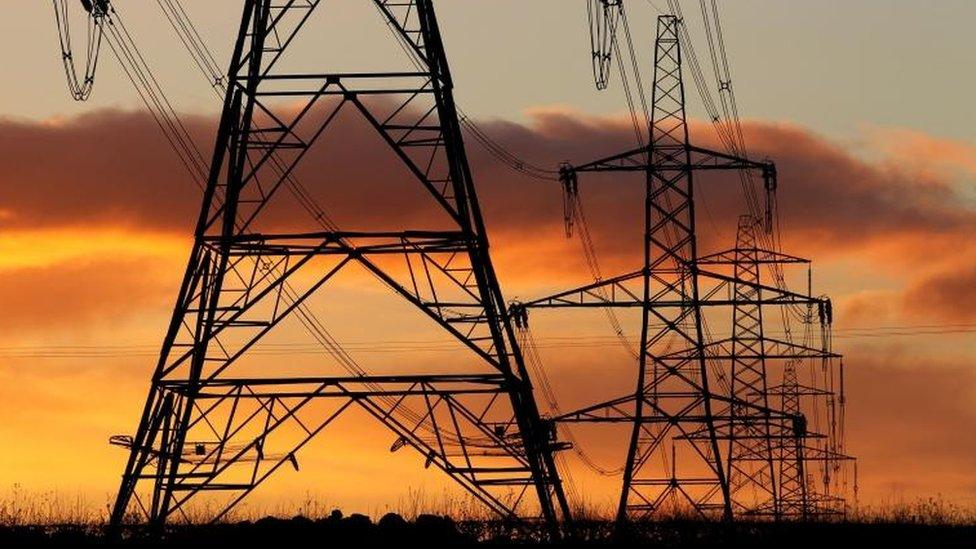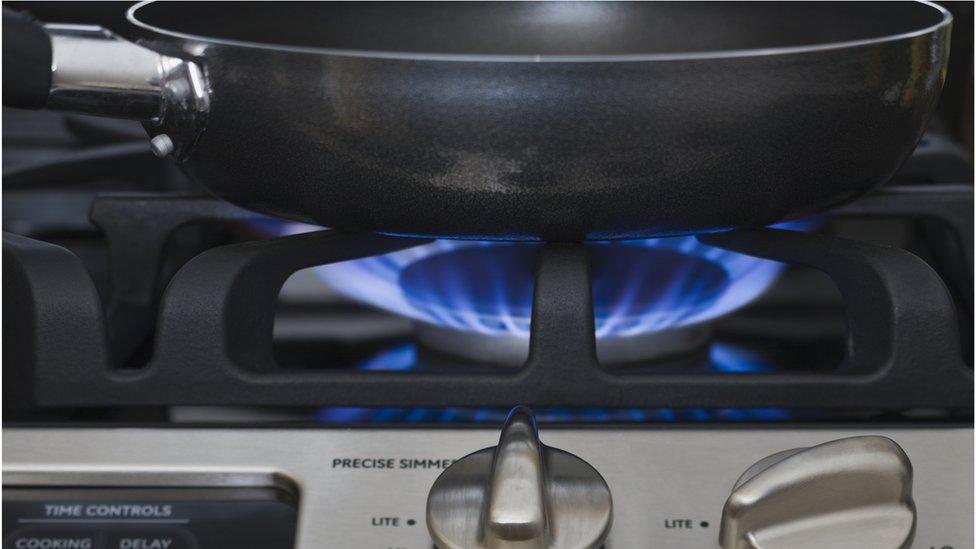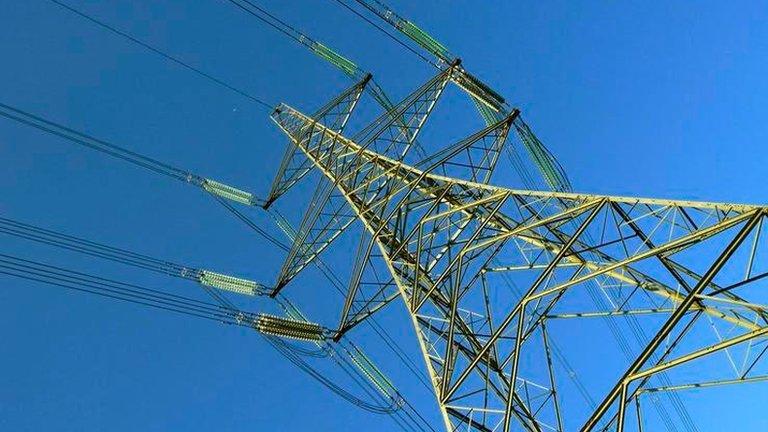No excuse for energy price rises, says Ofgem
- Published

Energy companies have no excuse for increasing standard tariffs, the energy regulator Ofgem has said.
It believes the large energy suppliers should have protected themselves from recent rises in wholesale prices by buying gas and electricity in advance.
The warning comes despite new data which shows that supplier's costs were considerably higher at the start of this year compared to a year earlier.
However, those costs are now beginning to fall.
"It's not obvious that there should be significant price increases across the market", said Dermot Nolan, Ofgem's chief executive.
He was speaking as the regulator published a new measure of the cost pressures energy firms can expect in the coming year.
The Supplier Cost Index collates the impact of wholesale prices, network charges and the impact of levies linked to government policies.
The index shows that costs were about 15% higher in January 2017 compared to a year earlier.

Ofgem said that was largely down to rises in wholesale gas and electricity prices.
But Mr Nolan insisted that as a result of how the main suppliers buy gas and electricity - often up to 18 months in advance - the actual impact upon their costs should be much lower.
While a number of suppliers had increased prices of fixed tariffs in recent months, he said that most large suppliers had not increased standard variable tariffs.
"We don't see an obvious reason for price increases", he said.
Ofgem says that even if recent cost increases are sustained that suppliers should do all they can to protect customers from price increases by keeping their own internal costs down.
It warned that firms that did not keep prices down risked losing customers to rivals.
About a million customers switched from large suppliers to smaller rivals between June 2015 and June 2016.
Electricity prices may rise
Several of the big suppliers have announced plans to freeze standard energy tariffs this winter.
EDF cut gas prices by 5.2% on 6 January but will raise electricity prices by 8.4% on 1 March.
Mr Nolan said that consumers were more likely to see upward pressure on electricity prices rather than gas.
Ofgem's analysis suggests that of the 15% rise in dual fuel cost index compared to a year ago, electricity accounted for 6% of the rise and gas by 6.6%.
Government levies on electricity bills also accounted for 2.9% of that overall rise.
Consumer group Which? said the Ofgem cost index was "a step in the right direction".
Which? campaigns director Vickie Sheriff said the index would "introduce more transparency and help to understand what factors [have an] impact [on] people's bills."
"We expect to see Ofgem use this index to monitor suppliers and hold them to account to help protect customers from paying more than they need to for their energy," she added.
- Published12 January 2017
